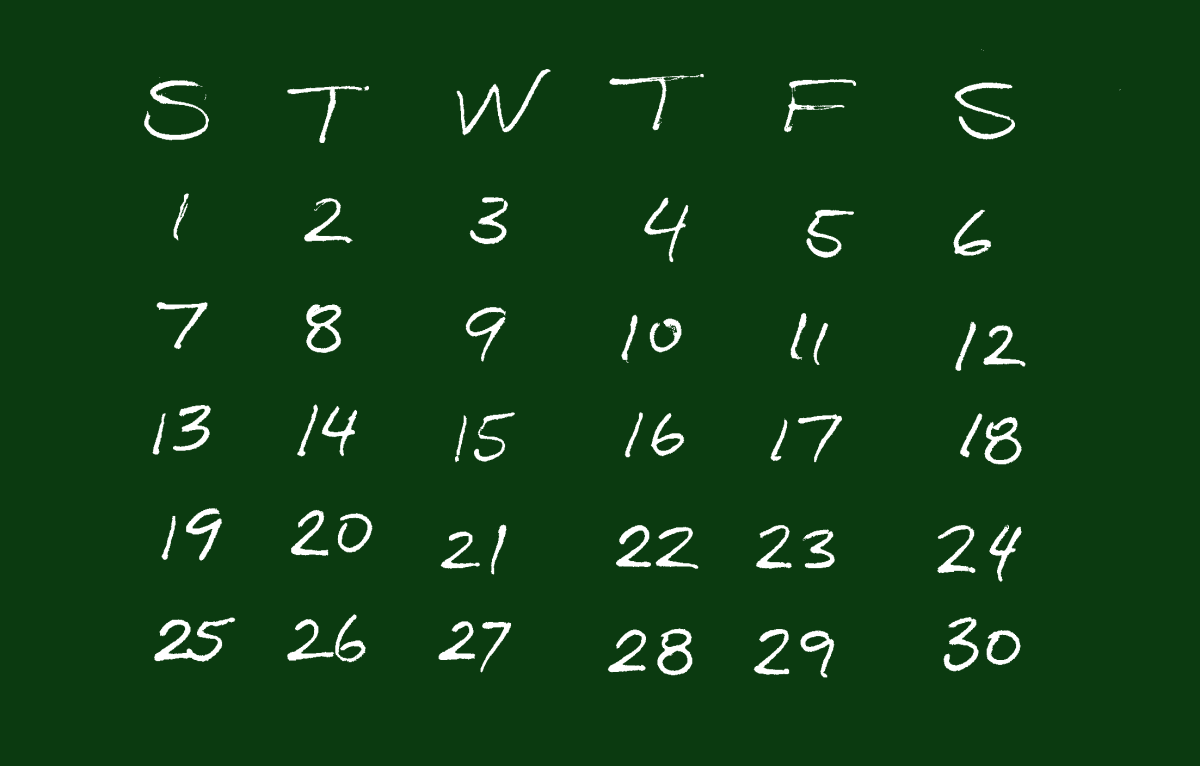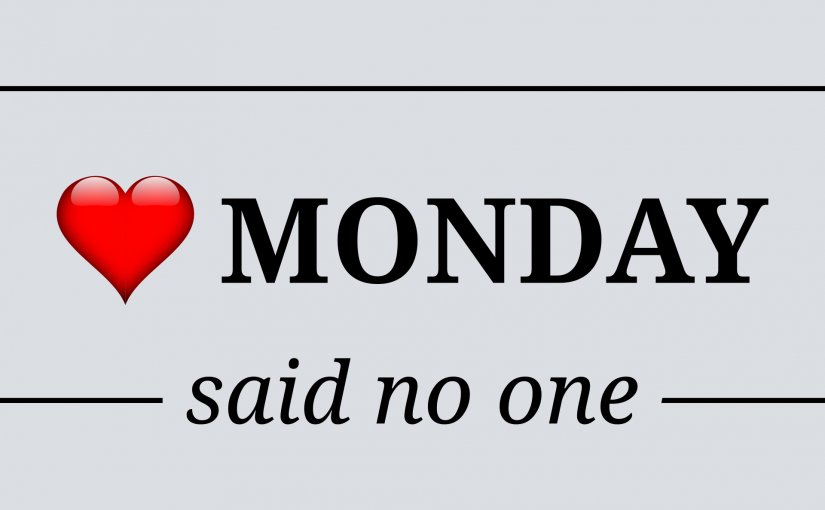Monday really gets on people’s ways. There’s a reason it’s hardly anyone’s favorite day. But if it is for you, here’s a math problem you should hook up with this Friday night.
I’ll have you do it, because I’m a lawyer — I don’t get math. When someone’s sued, and they come to me for help, I get stuck with this Texas rule: File an answer by 10 am the first Monday after 20 days after the client got sued.
And believe me, I’m not quoting verbatim; that’s the best way I can put it in plain English.
I struggle to add up the days. A calculator won’t do. A calendar still gets tricky as I jump back and forth from one month to another.
Sometimes we get more days, sometimes we get less (time or fewer days, grammar freaks). But my question remains: Why does Monday have to fiddle around? Why can’t it always fall on the same day of the month, every month and every year?
For this we need change. A revolution will do — one not as brutal as the French, you’d hope, but something to fix the failures of the 1790s. Revolutionary France tried to reform the annual timetable as part of its package of decimal measurements, but gave up a few years later. So let’s fill that gap, and reform the calendar.
Make a forever one — a perennial calendar — and stick with it! It’d be nice to know when to file an answer or schedule meetings. Per diem rent shouldn’t be higher in February that in March or August. Schools, businesses, governments, and even sports leagues would have it easier to plan things.
I said, we’ve tried. But we keep getting it wrong over and over, two phenomena being most worthy of recognition: math and madness.
A real day isn’t quite 24 hours to begin with, and a real year isn’t quite 365 days. Some extra minutes and hours get left off, making tuneups in the form of leap days or years a necessity. And even when that is somehow taken care of, we’re left with 365, a number that won’t simply divide into smaller chunks, quarters, months, fortnights, weeks, or whatever time unit.
But madness is a real thing, too. While nature gave us an odd number, we artificially got even with — wait — a seven-day week.
Reform proposals have been numerous, and some of the brightest minds have put them forth. Isaac Asimov called his project World Season Calendar, for it got rid of months and replaced them with the four seasons. A moderate Indian proposal even claimed: “There are no Fridays the 13th.”
But they seem to miss Monday, this evil back-to-work time. I’d like to change that. That won’t get us far, but it’s better than nothing. At least October’s days will match what September has:

November won’t match October, because October has 31 days. But getting rid of that one cranky day has opened the floodgates of possibilities.
To offset the 31st day effect, we could start a new week on the 1st of every month. This would be less of a problem with a six-day week, as we’d only have one day to go back or repeat. We could nostalgically call this leap unit Monday and make it a day off.
With no (or fewer) travailing Mondays to stress about, we can now resort to making other unit length-alike.
We could go decimal: 10 months of 36 and 37 (five quintiles of 73) could give us our annual 365 days. But accountants are used to quarters, and I want no disturbance that may leave me unpaid.
So let’s keep the quarters as well as months, but even out their days. In other words, do what so many have suggested before, but make the first of every month a Sunday or Tuesday, or whatever day you wish the week to start on. “No Monday” will get us there.
An Asimov-like project would get it right. The basic formula goes like this:

But unlike Asimov, we can afford to keep our beloved months:

When the quadrennial leap day comes, we’ll put it at the end, no problem. The problem is that, however new and different this proposal may sound, it’ll likely pass unnoticed like the many ones before. And if it does somehow take off, vicious opposition will kill it for sure.
Employers will need persuasion, although frankly we’re not asking for too much time off. From the 52 Mondays we’d have to retire, only a third of them would be replaced with non-working days. In the United States, five national holidays already fall on a Monday each year. Add annual leave, and we’re speaking here of around 10 diurnal courses we’d have to somehow make up for. How?
But the insurmountable comes from our very selves. Who’ll want a different birthday all of a sudden? (Some of us chose to be born on a certain date for a reason. I picked September 28 purposefully.) There won’t be October 31 to do Halloween right, and more importantly, what will happen to the zodiac?
When math doesn’t add up, I said, madness manages to keep us alive.
Calendar reform requires wide consensus, and people don’t accept change unless they’re badly bleeding from the status quo. The Gregorian calendar ticks off lawyers, but not that badly.
This article though still proves a point — in a nerdy, quasi-scientific way — that Monday sucks!
Copying and redistribution allowed under the terms of the Creative Commons Attribution-NoDerivatives 4.0 International license
Shkurtegëza për këtë postim: http://pli.si/1Ho3rnw


